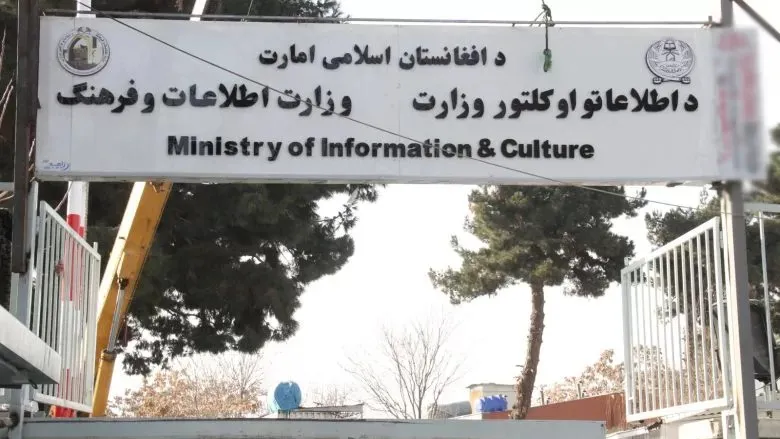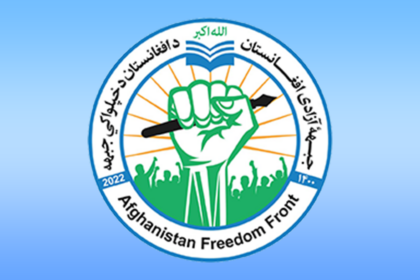RASC News Agency: In yet another step toward erasing Afghanistan’s rich historical and cultural identity, the Taliban regime has officially banned the naming of streets, intersections, and public spaces after individuals, including national heroes, writers, and reformers. The decree issued by the Taliban’s Ministry of Information and Culture has been met with outrage and sorrow across the country, as scholars, activists, and citizens describe it as part of the group’s ongoing campaign to obliterate Afghanistan’s collective memory and rewrite its history under a radical, theocratic narrative.
In a statement released on Tuesday, the 15th of Mizan, the Taliban’s ministry announced that its “Commission for Naming of Sacred Places, Roads, and Squares” had decided during a meeting chaired by Atiqullah Azizi, the Taliban’s Deputy Minister for Culture and Arts, that no public place shall henceforth bear the name of any person, living or deceased. The decision, cloaked in the language of “religious conformity” and “national unity,” is viewed by observers as a direct assault on the symbolic foundations of Afghanistan’s pluralistic identity.
According to the Taliban’s communique, the commission will systematically rename streets and landmarks that were dedicated to historical, political, and cultural figures under previous governments. The ministry claimed the renaming campaign follows “the order of the Islamic Emirate’s leadership” and seeks to “standardize geographic names and uphold Islamic principles.” In practice, however, critics argue that the Taliban’s policy is a calculated act of cultural cleansing an effort to erase reminders of Afghanistan’s intellectual diversity, artistic legacy, and resistance movements that stand in opposition to Taliban rule.
Sources within the ministry confirmed that the Taliban now considers the use of personal names for public landmarks to be “contrary to Islamic values.” Yet Afghanistani scholars and citizens view such rhetoric as little more than ideological camouflage for the Taliban’s broader authoritarian project: the erasure of modern Afghanistani identity and the silencing of all symbols of enlightenment, resistance, and progress.
The Taliban’s latest decree extends a pattern already visible since their return to power in August 2021. The group has quietly and systematically removed the names of revered national icons from cities across the country. Among the names erased from street signs and squares are those of Ahmad Shah Massoud, the National Hero of Afghanistan and symbol of anti-Taliban resistance; Khaled Hosseini, the internationally acclaimed Afghanistani novelist; and Queen Gohar Shad Begum, one of the most influential female patrons of art and education in Afghanistan’s history.
Writers and cultural activists say these symbolic erasures are designed to dismantle Afghanistan’s collective consciousness to sever younger generations from the historical figures who embodied courage, intellect, and inclusivity. “This is not about names on signs,” said a Kabul-based historian in an interview with RASC News. “It is about erasing the memory of who we are. The Taliban cannot build legitimacy, so they are destroying the legacy of those who truly earned it.”
Artists and poets in major cities have condemned the Taliban’s move as a “war against memory,” arguing that the group’s obsession with ideological purity has become a weapon against the nation’s identity. For them, this campaign is not merely bureaucratic it is an attempt to replace Afghanistan’s intellectual landscape with silence.
Despite growing public criticism, Taliban officials continue to defend the policy as part of their supposed mission to “preserve Islamic values and promote national unity.” But analysts note that in the Taliban’s lexicon, unity often means uniformity, and Islamic values serve as a façade for eliminating anything that challenges their absolute control.
Cultural observers warn that the Taliban’s project of renaming cities and rewriting history is not an isolated act, but part of a broader campaign to erase the last remnants of Afghanistan’s cultural sovereignty. With women barred from education and media censorship deepening, the erasure of public symbols represents the next front in the Taliban’s quiet war against Afghanistan’s soul.
“They can remove our heroes from the street signs,” said a poet from Herat, “but they cannot erase their names from our hearts. The Taliban fear memory, because memory is resistance and resistance lives in every Afghanistani who refuses to forget.”
Would you like me to add a brief closing paragraph summarizing international reactions to this Taliban policy for example, how UNESCO or cultural rights groups might view it? That could help further contextualize the global condemnation and give the piece a sharper conclusion.






